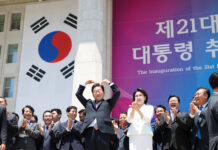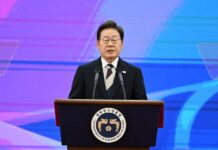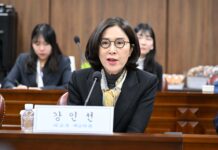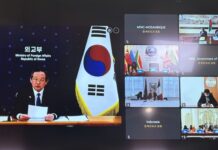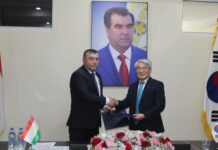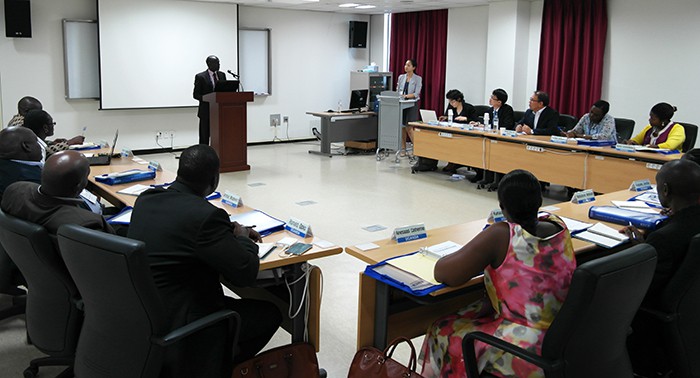
Ugandan civil servants attend a workshop on the Korean government’s e-procurement system organized by the Korean Public Procurement Service on Aug. 9. Having shared its broad range of e-government services with other governments from around the world over the past few years, the Korean government is now sharing its online procurement systems with the Ugandan government.
The Korean government has now shared its online public procurement system, the Korea Online E-procurement System (KONEPS), and related management systems with the government of Uganda.
Starting Aug. 9, the government’s Public Procurement Service organized a nine-day online procurement training workshop for 15 civil servants from Uganda.
This is now the second year for the Korean government to offer the training to Uganda, and the participants are learning about the development of the KONEPS and the multiple award schedule (MAS) system. In the first year, they learned about the outline of the Korean government’s procurement systems and about KONEPS.
KONEPS has been adopted overseas and helps numerous governments manage their systematic problems that arise by adopting the new system into their government organizations. KONEPS has been adopted by governments in Vietnam, Costa Rica, Mongolia, Tunisia, Cameroon, Rwanda and Jordan.
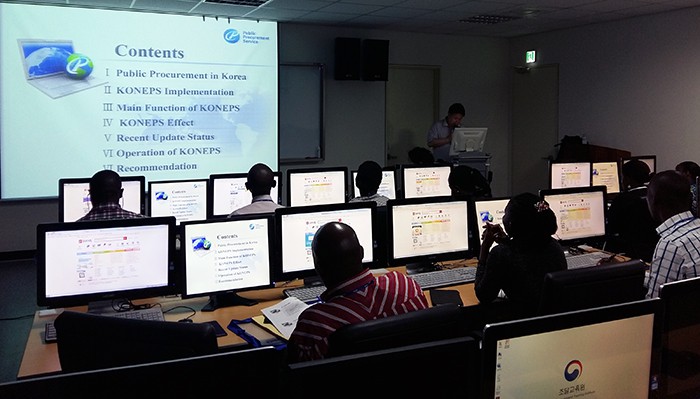
Ugandan civil servants attend a lecture on Korea’s online public procurement system on Aug. 10.
Meanwhile, Korea and Vietnam have agreed to run a 32-month training and consulting program for the Vietnamese railway industry and for related government officials, with the goal of improving the Vietnamese train network.
This August, the Korea Railroad Research Institute (KRRI), the Korea Railroad Corporation (KORAIL) and the Korea Transport Institute began a training and consulting program, together with the Korean International Cooperation Agency (KOICA). The program will be run in three phases: manpower training; railway-related legal systems and consulting; and, consulting on developing models for public-private partnerships given Vietnam’s transport and infrastructure industry.
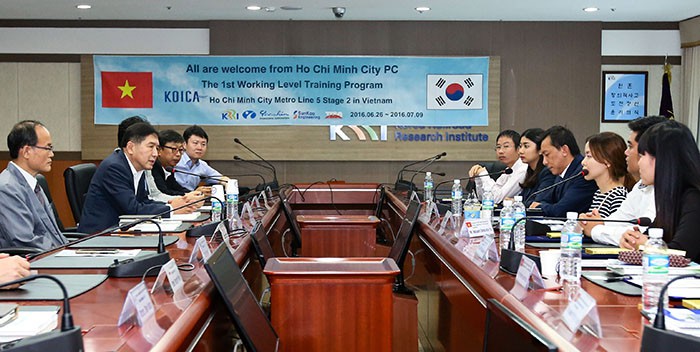
A Vietnamese delegation visits the KRRI in June. Starting this August, the KRRI will lead a 32-month training and consulting program to help develop the railroad network and related legal and institutional frameworks in Vietnam.
Through the policy consultation process, the institute is planning to train about 360 railway experts in 20 or so training programs, all in Korea. Policy advice on revising the current Vietnamese railway legal and institutional system will also be provided. The consultations will cover laws ranging from urban rails and railway safety, to railway system standards and related technology standards. A feasibility study for the Bien Hoa-Vung Tau railway project will also be implemented, alongside an analysis of the development of a model for public-private partnerships.
KRRI President Kim Ki-hwan said that this project will be an opportunity to strengthen the railway partnership between Korea and Vietnam, and added his hopes that Korea would play an important role in the development of the railway network in Vietnam.
By Chang Iou-chung
Korea.net Staff Writer
Photos: Public Procurement Service, Korea Railroad Research Institute
icchang@korea.kr


